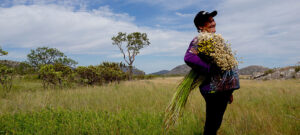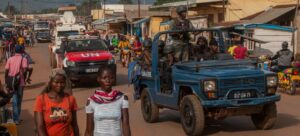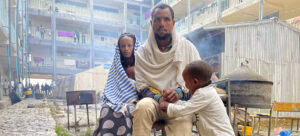“This is really a programme for the people, because people are part of nature…so they are incorporated in nature protection but also in sustainable use of natural resources”, said Miguel Clusener Godt, the UN Educational, Scientific and Cultural Organization’s (UNESCO) MAB Programme Secretary.
Where we stand
Today 727 biosphere reserves integrate nature conservation and sustainable development in 131 countries, including 22 transboundary sites.
In Africa there are 86 sites in 31 countries; Arab States, 35 sites in 14 countries; Asia and the Pacific, 168 sites in 40 countries; Europe and North America 306 sites in 24 countries; and 132 sites in 24 Latin American and the Caribbean countries.
If bioreserves worldwide were to be put together, Mr. Godt said that they would be equivalent to about five per cent of the world’s surface, spanning 6,812,000 km² or “around the size of Australia”.
Africa
The diverse vegetation and unique fauna in Tanzania’s Gombe Masito Ugalla Biosphere Reserve is also home to the largest chimpanzee community in the country and includes the Gombe National Park, forest land reserves and part of Lake Tanganyika.
Faunal species in the area include African elephants, ornate frogs and eight primate species.
Flora there includes a species discovered in, and named after, Gombe, while the biodiversity of Lake Tanganyika encompasses over 300 fish species, 250 bird species, and reptiles, such as the water cobra and the Tanganyika water snake.
Asia and the Pacific
The Maolan in China was listed as a biosphere reserve in 1996. It lies in the Qiannan Buyi and Miao Autonomous Prefecture in Guizhou Province and covers an area of 20,000 hectares, with a forest coverage of 88.61 per cent.
Renowned for its “hugging trees” which cling tenaciously to the rocks of the mountain landscape, the rich biodiversity also includes pheasants, orchids and magnolias.
The local Yao, Buyi and Shui indigenous peoples value their region’s environment and cohabit harmoniously with nature. As the trees provide them with vital resources, for over 1,000 years local communities have performed ceremonial practices and rituals to care for the trees.
Arab States
Located on the western slopes of the Mount Lebanon range and overlooking the Mediterranean Sea, the 6,500-hectare biosphere reserve of Jabal Moussa encompasses the ‘Mount of Moses’ – an important site to Christian pilgrims – and its seven villages.
Jabal Moussa’s landscape, preserved throughout centuries, conceals the markings of a region at the meeting point of civilizations, which archaeologists are still unearthing.
Only 40 km to the north-east of Beirut, the biosphere reserve is three times as large as the city, and together with the Shouf and Jabal Rihane biosphere reserves forms an ecological corridor running along Lebanon’s mountainous backbone.
Latin America and the Caribbean
Located in south-east Uruguay, Bañados del Este harbours a remarkable complex of ecosystems, including white sand beaches, dunes and lagoons along the Atlantic coast and is home to diverse wildlife that remains almost intact both on land and at sea.
The biosphere reserve covers 12,500 km² of Uruguay’s eastern coast and is also home to the State’s highest summit, Cerro Catedral.
Hidden among the dunes, this tourist destination is among the most popular in the biosphere reserve and the perfect spot to connect with nature. Due to its remoteness, there is no connection to the local grid or landlines, but the local population is able to access mobile networks and the internet.
Europe
In Spain, transitioning to clean energy at the El Hierro Biosphere Reserve exemplifies ongoing efforts to live in harmony with nature.
The biosphere reserve covers the entire island and some of its waters, with 60 per cent of the island integrated into the core zone and buffer areas.
El Hierro is aiming to produce 100 per cent of its electricity from renewables.
Meanwhile, at least 2,604 species of flora and fauna have been recorded on the island, and the reserve is a safe-haven for species of friendly sea-faring mammals.



















